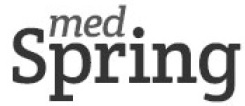For many people, gender mainstreaming in water is about solving problems linked to the image of a women carrying water in a jar on top of her head. Although this is a serious and real problem, it is certainly not the most common one in the Mediterranean Region. There are many other discrimination obstacles that women suffer in the context of agriculture water management that need attention from the research and development points of view.
During the last decades considerable efforts have been made in order to identify some of the inequity problems that affect women in agriculture water management and the related literature has produced many statements such as: women have less access to agriculture assets (land and water), inputs and services, they have less access to rural employment opportunities and reduce payments ; they operate smaller farms, have less livestock but more workload including fetching water and fuel-wood; they have less representation and responsibilities in the public administration of the water sector; there are more women than men among the rural poor population and others. In summary, the problems have been identified but what is less known is the magnitude or extend of these problems, their origin and the actions needed to solve them.
There have been notable efforts in order to quantify and provide statistical evidence assessing the extent of these problems. One of the research efforts of the EC in this sense should be mentioned is the GEWAMED project. From 2006 to 2011, this project aimed at providing information about some of the already mentioned problems. Also NGOs, national and international organizations are making significant contributions to provide a substantial information of the situation of women in the Mediterranean countries. However, we are still far from having a clear vision of the magnitude, origins and solutions to the inequity problems that women face in water for agriculture.
Gender research in agriculture water management is significant for two reasons: firstly, because identifying the magnitude and importance of the problems allows setting up strategies to solve them; secondly, because one of the effects of these gender inequity problems is that agricultural production is well below its potential as reported by FAO (The state of food and agriculture 2010-2011. Women in agriculture, closing the gender gap for development, FAO, 2011). If these shortcomings were solved, and certainly the expectations are significant, considerable increases in food production could be achieved worldwide according to FAO.
Research is not the only player in this important topic but, as always, development also plays a substantial role. The European Strategy for Gender Equality of the EC has made a significant development contribution to this issue but also other international, bilateral and national organizations. Integrating applied research and development is a winning combination that may need more attention.
Gender issues are of horizontal nature, this is to say that they should be mainstreamed in any research or development project. In the EC research projects this is the normal practice but at country level it is still far from a systematic inclusion although research and development projects are becoming more sensitive to the gender issues everywhere. It is important that any research or development projects pays attention to the gender issues but if they focus on technical issues the gender component is bound to have a limited impact. Research and development projects focusing in gender issues are likely to have greater impacts.
Several of the above issues were discussed at the EMEG Meeting held on Lisbon (June 2013) in the Water Group. Participants were supportive initially of the ideas exposed but when it came the moment of proposing research projects ideas gender was low in the priorities. Participants supported the idea that gender continues to be treated as a horizontal issue in research projects but did not felt that it was a priority topic of research. This is a reality that has to be acknowledged and consequently it becomes apparent that gender research issues related to water in agriculture may have better opportunities under the socio economic issues than under the technical ones.
Text by Juan Antonio Sagardoy, Senior Gender and Water Management Consultant and EMEG Expert.
An Insight Into Gender - Here you can see the interview to Juan Antonio Sagardoy during the First EMEG Meeting
GEWAMED Project: Mainstreaming Gender Dimensions into Water Resources Development and Management in The Mediterranean Region (GEWAMED), EC Research Coordinated Action, (2006- 2011).



